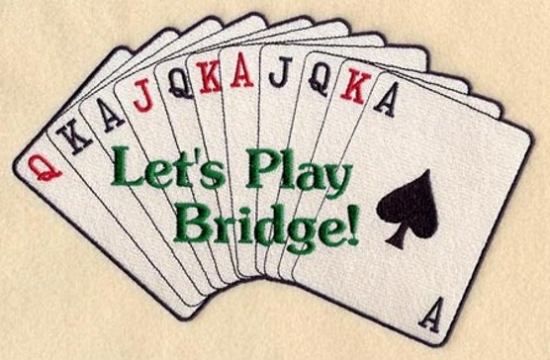
In one of the early articles in this series (ESRA MAGAZINE 156) I made reference to the late Rixi Marcus, MBE, winner of two European and one World Ladies' titles for Austria before World War II, and a further seven European and four World titles for Britain after her naturalization in 1950. Her maxim and title of one of her renowned bridge books was Bid boldly – Play safe.
In this article we will return to the second part of her maxim and discuss safety plays. Before doing so, though, I would like to point out that Rixi, like most of the great bridge players, made her name in team, rather than pairs, competitions.
There is a considerable difference between these two forms of bridge. In team competitions, like Rubber Bridge, the emphasis is on making one’s contract. Scoring is in IMPs (International Match Points) based on a sliding scale of the absolute difference between what you scored on a given hand and what your opponents scored on the same hand, your teammates being in defense at the second table. Depending on vulnerability, your making game and the opponents failing to do so, could result in a substantial “swing” of as many as 14 IMPS. Making one more trick than the opponents will gain a mere 1 to 3 IMPs. The 10-point difference, however, between making 10 tricks in No Trumps as opposed to 10 tricks in, say, spades, is worth precisely zero in IMPs.
On the other hand, in a pairs, or so-called “top-bottom”, competition, which is scored in Match Points (MPs), the objective is to outscore the typically 12 other pairs who play the same hand. You score 2 MPs for every pair you beat and 1 MP for every pair with whom you draw. So if you are the only pair to score, say, 90 points for making 1NT while the other 12 pairs score 80 points for making their 1 heart contract, you will receive a “top” of 24 MPs out of a possible 24, and the others will receive a score of 11 points each. Match point scoring places a premium on overtricks and NT contracts over suit, especially minor suit,contracts, and so, for the purist, distorts the game somewhat.
In general, therefore, safety plays, which sacrifice the possibility of over-tricks in favor of securing a contract, are appropriate in team competitions but may result in poor scores in top-bottom competitions.
To illustrate the point, I have chosen two hands drawn from real situations, 34 years apart.
The first occurred in South Africa in 1973. I was playing with my sister, Avril, in a regional teams competition against the seconded seeded team. The match was very tight and it was touch-and-go when we reached the penultimate board that was to become one of my all-time favorites.
North
♠ 10 3 2
©Q J 6 5
¨A 4 3
§ 9 5 3
South
♠ A K J 7 6 5 4
©8 7
¨5
§A K 7
With E-W vulnerable, West opened 1¨, I passed, East raised his partner to 2¨ and Avril in the South seat, bid 4♠, all passed. West won the first trick with the ©K and, seeing dummy, promptly switched to the ¨K at trick two to kill the diamond entry to dummy. Avril, won with the ¨A. What next?
Well the hand seems fairly innocuous. With 10 spades, most people would play for the 75% chance of a 2-1 spade break and then after knocking out the ©A, enter dummy with the last spade and discard the loosing club on dummy’s high heart, making the contract with an overtrick.
Not Avril. She realized that if the three missing spades were all with East – a probability of only 12.5% it is true - the contract would be in jeopardy with no way to reach the high hearts in dummy so at trick three she led a small spade from dummy and, when East followed, finessed the ♠J. She didn’t mind losing to West’s singleton or doubleton ♠Q because that would mean spades had broken 2-1 and she would have the ♠10 as entry to eventually cash a high heart. The potential overtrick would be a small price to pay for securing the contract. As it happened, the finesse held – West showed out of spades – and Avril’s brilliant safety play won us the match.
The next hand occurred last week in a top-bottom tournament on the Internet.
North
♠ 6 2
© J 3
¨KQJ87
§ K Q 8 2
South
♠ K 9 7 5
© A Q 9
¨ 10 9
§ A 10 9 7
I was dealer in the South seat and the bidding proceeded as follows:
North East South West
1§ Pass
2¨ 2♠ 2NT Pass
3¨ Pass 3NT
West led the ♠J. East could not afford to overtake his partner’s card so played low and I, of course, ducked. West continued with the ♠10, East played low and I again ducked. The contract was now safe. (Well played, Alan!) West was now out of spades so couldn’t attack that suit any further. The defense could now only take the ¨A and one other spade. Indeed, West played a heart into the “jaws” of my A Q, trapping his partner’s King. I next led a diamond from my hand which surprisingly lost to East’s ¨A. I won the heart continuation in hand, ran the established diamond suit and with careful play of the club suit - small to dummy’s King and back to my Ace - was able to pick up West’s §J and make a total of 10 tricks.
Good score? Afraid not. It seems the field must have eschewed the safety play in spades and won the second trick. At most other tables the defense ended up with only one spade and one diamond trick so we got close to a bottom on the hand. Oh well! I guess I’ll stick to team IMP games for a while.
 ESRA College Netanya is reborn
ESRA College Netanya is reborn ESRA HERZLIYA ACTIVITIES
ESRA HERZLIYA ACTIVITIES Chanukah Celebration at ESRA Rishon LeZion
Chanukah Celebration at ESRA Rishon LeZion  Bridge the right way
Bridge the right way A Bit of Humor on Food
A Bit of Humor on Food ESRA Photo enthusiasts meet monthly
ESRA Photo enthusiasts meet monthly Alan Caplan
Alan Caplan